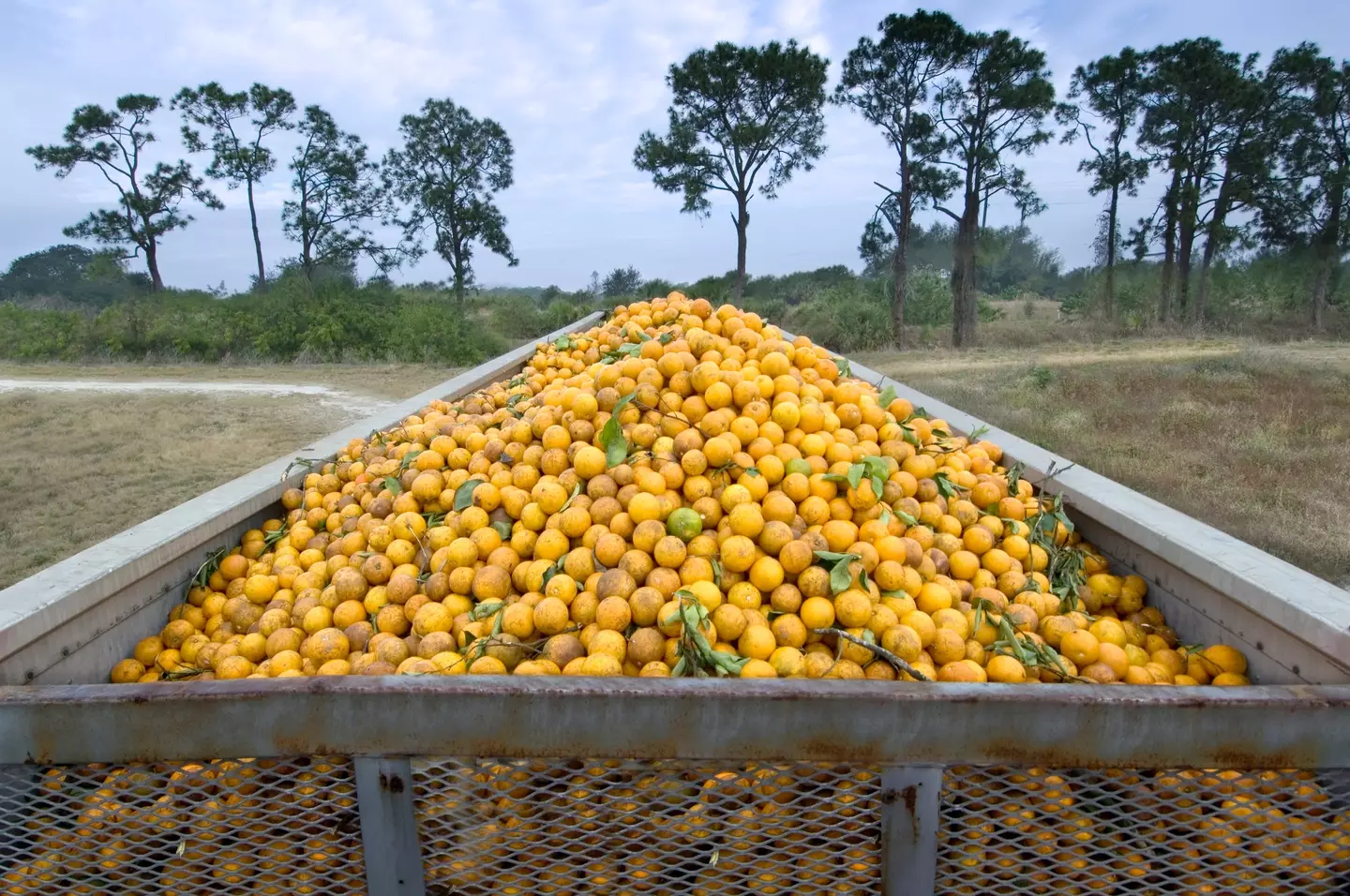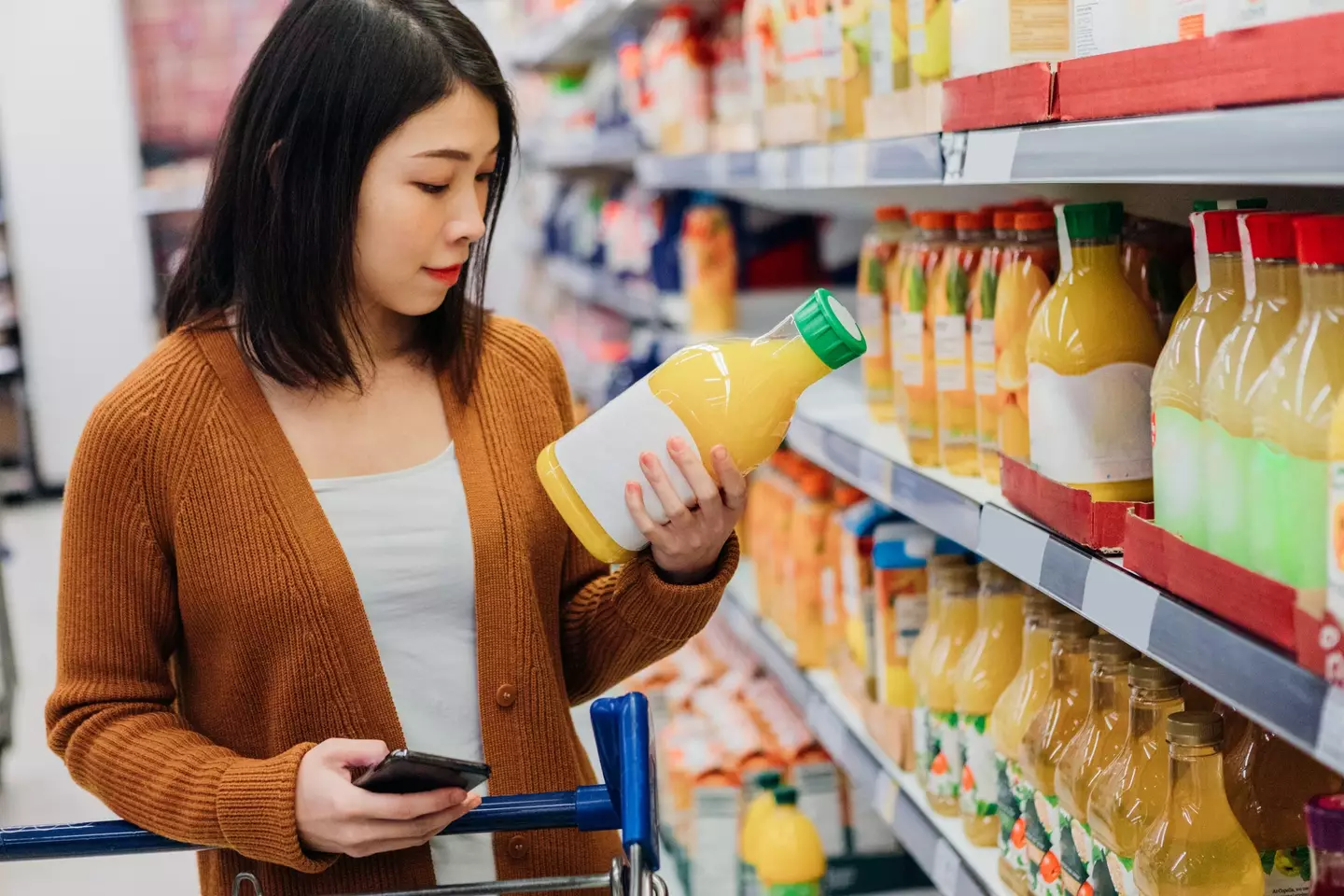
When it comes to public health advice, few recommendations get made more often than ‘eat more fruit and vegetables’.
On the fruit side of things, 100% juices have long been touted as a worthy substitute for a whole fruit. A serving of orange juice supposedly offers the same nutritional benefits as a whole orange, or so the advice goes, but this isn’t quite the full truth.
Concerns have been raised about the sugar content of fruit juices, particularly compared to a serving of a whole fruit equivalent. To that end, as part of the Make America Healthy Again crusade, the Trump administration has proposed that orange juice could be produced with low-sugar oranges.

Advert
It aligns nicely with the general US government sentiment around cutting obesity rates and UPF consumption, but the move was actually originated by the Floridan citrus industry which faces challenges around crops and their sugar content.
The Food and Drug Administration (FDA) said the proposals would be unlikely to impact the flavour or nutritional content of forthcoming orange juices, adding that it would provide ‘flexibility to the food industry’.
As to whether you should be concerned about orange juice’s sugar content, it’s certainly worth being aware of.
While it’s packed with vitamin C, potassium, thiamine, vitamin A and calcium, a typical serving contains around 20g of sugar. By comparison, a whole orange contains around 12g of sugar, and a can of full-fat Coca Cola contains around 31g per 330ml can.
In other words, a glass of orange juice might contain as much as two thirds of the sugar of a can of Coke. That’s pretty hefty.
While drinking it on occasion as part of a healthy diet, particularly alongside an active lifestyle, is unlikely to do much damage, the ease of supping down liquid sugar makes it a concern among kids and those who chug the stuff without being aware of its sugar and calorie content.
'Orange juice is sugar water,' said Barry Popkin, a professor of nutrition at the University of North Carolina, according to Seattle Times. 'Every juice is essentially sugar water.'
Of course, this may not be news to you. Juices have been getting flak from everyone from health experts to Joe Rogan over the past few years, and the antipathy has been bearing out in juice sales.
With consumers opting for low-sugar alternatives or perhaps entirely cutting fruit juices from their diet, producers have been facing increased pressure.

Along with waning demand, production issues, and increased prices, Florida’s orange producers are poster boys for the challenges. The call for low-sugar orange juice has been significantly influenced by their crops being victim to a bacterial infection that has been cutting sugar content for years.
The issue was exacerbated by Hurricane Irma in 2017, with Florida trade groups beginning to petition the FDA around orange juice sugar content from 2022.
In order to qualify as ‘pasteurised orange juice’, orange juice must contain a minimum amount of sugar. That limit is set by the FDA, hence the lobbying for a cut in the minimum sugar content required.
